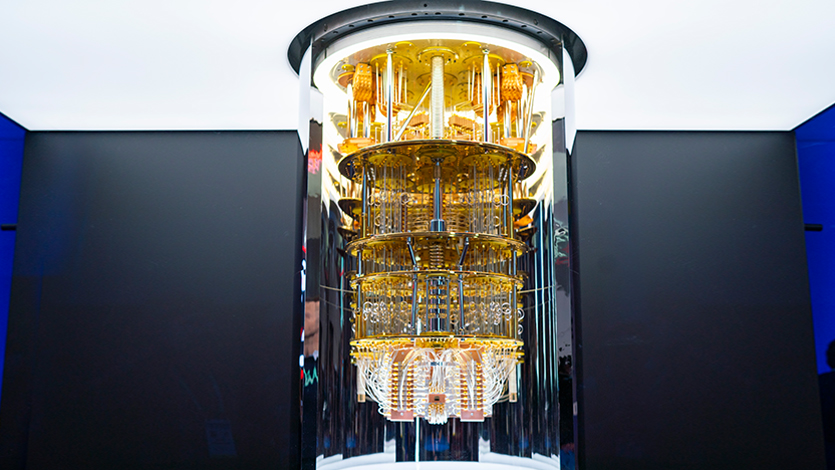Groundbreaking New Course in Quantum Computing Offers Students Hands-On Experience in the Future of Tech

Thanks to its long-standing partnership with IBM, Marist is one of the few schools in the U.S. to offer a quantum course with a hands-on focus.
February 12, 2021—This fall, Marist entered rarefied air in higher education when it launched its first-ever quantum computing course. Open to both undergraduates and adult learners through the College’s Institute for Data Center Professionals (IDCP), the class, “Introduction to Quantum Computer Algorithms and Programming,” is taught by Assistant Professor of Information Technology and Systems Dr. Casimer DeCusatis. What really separates this course apart from what other colleges offer is its interdisciplinary approach.
Marist students are utilizing IBM Quantum hardware, using the open source Qiskit software development kit (SDK) in a secure, online virtual cloud lab environment. This is one example of the IBM-Marist Joint Study, a 30 year partnership that exposes students and faculty to leading edge technologies and provides them an opportunity to work on projects that are mutually beneficial.
Strong Background in Quantum Computing
IBM has a long history as it relates to quantum computing. In 2016, IBM was the first company to make a universal quantum computer accessible via the cloud, and now has an active global community of more than 280,000 users, who have run hundreds of billions of quantum circuits.
“IBM believes that open source access and adoption is how an ecosystem of developers, scientists, educators, and professionals across different industries will get quantum ready for this next generation of computing. Scaling the global community of quantum computing practitioners is key to advancing quantum computing for science and business, and educating the next generation of quantum researchers, engineers, and developers is a crucial step in that scaling process,” said Dr. Abe Asfaw, IBM’s Global Lead of Quantum Education.
Courses like the one at Marist are key. “Each new collaboration, like the one we are embarking on with Marist, gets us a little closer to our goal of a quantum-ready workforce, and we are strongly committed to supporting academic institutions that provide comprehensive courses and training in quantum computing application development,” Asfaw explained.
DeCusatis is pleased with the projects that came out of the course and is excited to teach quantum computing on a regular basis. Last semester, one student competed a project on encryption while other came away with work to fuel conference presentations.
IBM’s Asfaw noted this is exactly what the company is seeking to do. “That’s why we have quantum education teams dedicated to making quantum computing ubiquitous in university classrooms through courses like Marist’s quantum applications course. From computer science courses such as this, to chemistry and business classes, students should become familiar with this technology and consider career paths rooted in quantum computing.”
Preparing Students for the Future of Computing
Quantum computing is expected to have an enormous impact on the world, including shedding light on chemical interactions, addressing difficult optimization problems, and boosting the power of artificial intelligence. Advances like these could open the door to new scientific discoveries, life-saving drugs, and improvements in supply chains, logistics, and the modelling of financial data.
“Ten years from now, quantum computing will be what the tech industry is all about and it will likely remain that way for the 20 years to follow,” DeCusatis said. “This really is the cutting edge. Quantum computing will be part of daily life and the way we’re teaching it is real, not just theoretical. At Marist, we’re preparing students to take jobs in the industry to work on this pioneering technology.”
Photos: Top, by Andrew Lindemann, courtesy IBM; middle, Casimer DeCusatis of Marist College; bottom, Abe Asfaw of IBM.



